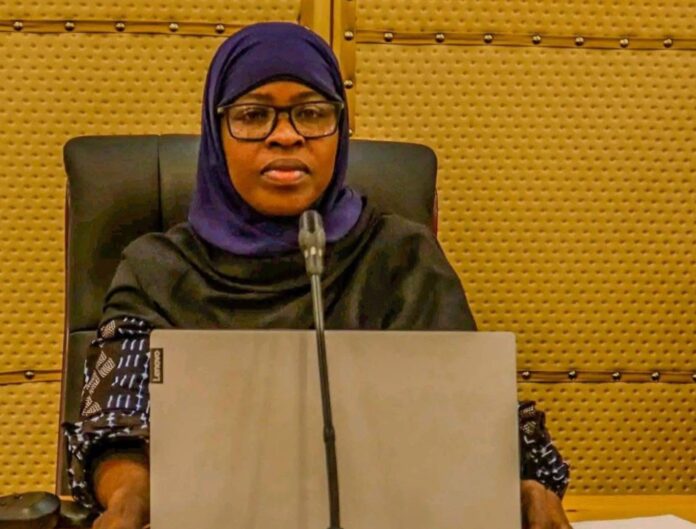Written by: Mama A. Touray
The Minister of Basic and Secondary Education, Hon. Habibatou Drammeh, informed the National Assembly on Thursday, July 3rd, that 85% of the School Improvement Grant (SIG) for the 2024/2025 academic year has already been disbursed to schools.
She made this statement on Thursday while responding to questions from Hon. Assan Touray, National Assembly Member (NAM) for the Bakau Constituency, who raised concerns about the late payment of SIG funds.
“Regarding the School Improvement Grants (SIG) payment for the 2024/2025 academic year, 85% of the grant has been disbursed—30% for the first term, 40% for the second term, and 15% for the third term,” Minister Drammeh stated.
She added that the remaining 15% will be disbursed following the completion of the National Assessment Test (NAT), which concluded last week. “Consequently, the disbursement of this remaining amount is currently underway,” she said.
Hon. Drammeh further explained that since 2014, senior secondary school principals have been responsible for directly procuring textbooks using SIG funds. She noted that during this period, there were no delays in textbook supply.
In a separate question, Hon. Alfusainey Ceesay, NAM for Sami Constituency, sought clarification on the use of Jolly Phonics in Lower Basic Schools and its integration with national languages.
In response, Minister Drammeh said that the Jolly Phonics approach was introduced as part of a pilot initiative aimed at addressing low literacy levels among early learners. “This intervention was prompted by findings from the 2007 Early Grade Reading Assessment (EGRA) report,” she explained.
She added that the Ministry has since expanded its literacy approach by incorporating national languages into instruction to further improve both literacy and numeracy outcomes.
“This initiative remains ongoing in all our schools,” she said. “However, the use of national language is still in the pilot phase, currently limited to only 55 schools. It has been integrated into the structured pedagogy framework for implementation in these pilot institutions.”
Minister Drammeh emphasised that Jolly Phonics remains part of the Ministry’s literacy enhancement strategy: “When we conceived the idea of introducing national languages, it was meant to complement our initial Jolly Phonics pilot—not replace it. The aim has always been to enhance not only literacy skills, but also numeracy outcomes in our basic schools.”
She added that teacher training is underway as part of the national language pilot. “Training of teachers on the five selected national languages is ongoing. The pilot aims to eventually expand to seven languages. This phase will help us identify challenges, make improvements, and prepare for a smooth nationwide rollout.”
On the choice of Wolof as the language of instruction in the 55 pilot schools, she said: “We chose Wolof because the sector already had supporting materials in that language, which made it suitable for the initial rollout. At present, all 55 schools piloting the national language initiative are using Wolof as the medium of instruction.”




